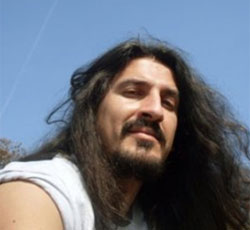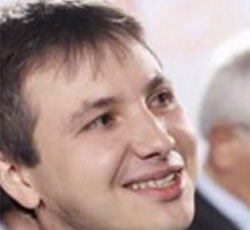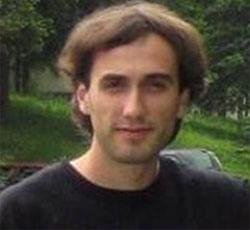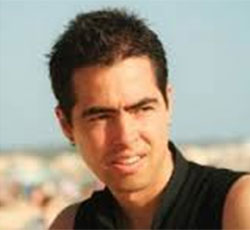What connects archeology, astronomy and ecology? The answer to this question takes us to a territory where our national pride as Bulgarians can thrive. There is no need to go to NASA, CERN or Harvard to feel proud as a Bulgarian: it suffices to visit the Club of Astronomy organized by the Faculty of Physics at Sofia University. In March lectures at the club highlight Bulgarian involvement in the world's biggest research laboratory, CERN, quite famous with its experiments with the Large Hadron Collider and with finding proof of the existence of the Higgs boson particle, a discovery rated by some as the most important one so far this century. The topics for discussion include „Archeology of the universe”, „The luminous blue variables - giant eruptions” and “Global warming and a global solution”.
 The club's organizer Ivaylo Stanev tells us that what connects the three topics is that there is Bulgarian participation in global research at almost all levels of physics - atomic physics, astronomy and geophysics. The archeology of the universe explores its past and the theory of the Big Bang which is supposed to have resulted into the so-called “primordial soup”. Its ingredients are elementary particles
The club's organizer Ivaylo Stanev tells us that what connects the three topics is that there is Bulgarian participation in global research at almost all levels of physics - atomic physics, astronomy and geophysics. The archeology of the universe explores its past and the theory of the Big Bang which is supposed to have resulted into the so-called “primordial soup”. Its ingredients are elementary particles  such as the Higgs boson, explains Associate Prof. Venelin Kozhuharov, one of the Bulgarian physicists who have worked in CERN.
such as the Higgs boson, explains Associate Prof. Venelin Kozhuharov, one of the Bulgarian physicists who have worked in CERN.
“For the time being”, he adds, “we have reliable data that in outer space there is a substance that causes galaxies to get attracted very closely by each other - dark matter. It accounts for 25% of the universe. It is even stranger though that the other constituent of the universe is energy that repels galaxies - the so-called dark energy which accounts for 70% of the universe. So, not everything ends with the Higgs boson, but it is an important step to building a more comprehensive model of the universe and its future.”
 Gancho Ganchev, a PhD student at the Department of Astronomy, tells us about the reason why astronomy is so keen on the luminous blue variables which explode into supernovae. The beginning of this interest goes back to Edwin Hubble, he explains, and adds that observations in Bulgaria began in the 1980s.
Gancho Ganchev, a PhD student at the Department of Astronomy, tells us about the reason why astronomy is so keen on the luminous blue variables which explode into supernovae. The beginning of this interest goes back to Edwin Hubble, he explains, and adds that observations in Bulgaria began in the 1980s.
“These occurrences help us discover the secret of evolution of the universe but also the appearance of the elements that build ourselves as humans. We are made of elements from stars! For example, human blood contains iron and it is formed exactly in the depths of these supernovae. As Lavoisier once said: 'In nature nothing is created, nothing is lost, everything changes.'”
However, Lavoisier's maxim 'nothing is lost' hardly applies to global warming.
Asked whether there is a global solution, lecturer Tihomir Dimitrov / Master at the Department of Astronomy / is adamant:
 “In fact, there is a solution, but it is up to any of us and in particular, up to the governments worldwide. Specific measures are needed against those who pollute the environment with carbon dioxide. The facts show that its levels in the atmosphere have been rising and its concentration has started to reach critical levels. The problem is getting worse and it is accelerating”, Tihomir Dimitrov notes.
“In fact, there is a solution, but it is up to any of us and in particular, up to the governments worldwide. Specific measures are needed against those who pollute the environment with carbon dioxide. The facts show that its levels in the atmosphere have been rising and its concentration has started to reach critical levels. The problem is getting worse and it is accelerating”, Tihomir Dimitrov notes.
Anybody willing to learn more about the Bulgarian contribution to world astronomy can do that during the lectures at the club. They are held every Thursday at the Faculty of Physics and the doors are open to all, regardless of age or education status. Returning to Lavoisier, we can say that nothing is wasted, especially when it comes to contribution to science.
English Daniela Konstantinova
Timișoara, a large multicultural city in western Romania, is the center of the historical community of the Banat Bulgarians . The members of this community are descendants of settlers from the Bulgarian lands nearly three centuries ago, who have..
In Gabrovo – a city in the geographical center of Bulgaria, once described as the Bulgarian Manchester, but today facing demographic challenges – there are young people who believe that the future can be better and that this largely..
For 15 years, Stela Nedkova has been living in Brussels . After completing her education in Bulgaria, she decided to test herself in a different reality to see whether she could handle life’s challenges on her own, without her parents’ help. Stela faced..

+359 2 9336 661
